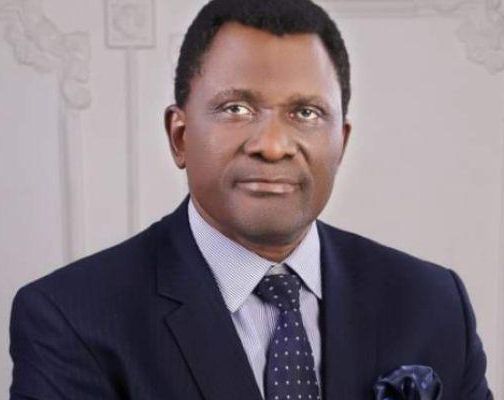FTAN writes tourism minister, calls for overhaul of 2022 NIHOTOUR Act
Posted on: June 18, 2025, by : uguru okorie
The Federation of Tourism Associations of Nigeria (FTAN) has written to the Minister of Culture, Arts, Tourism and Creative Economy, Mrs. Hannatu Musawa demanding the immediate review and overhaul of the National Institute for Hospitality and Tourism (NIHOTOUR) Establishment Act 2022, saying the act is currently creating crises in the Nigerian tourism industry.
In the letter written by the federation signed by the president, Mr. Nkereuwem Onung, FTAN called on the minister to intervene and bring clarity to the Nigerian tourism and hospitality Industry, saying the NIHOTOUR Establishment Act 2022 is currently creating confusion in the industry.
In the letter dated June 16, 2025, FTAN said: “We are aware that the current Director General of NIHOTOUR Dr.Abisoye Fagade is attempting to implement the spirit and the letters of the NIHOTOUR (Establishment) Act 2022. It has already generated conflicts and confusion in the industry and the Federation does not subscribe to such.
“We therefore call on the Honorable Minister, to act immediately to save the Hospitality and Tourism industry from chaos and imminent collapse due to the confusion of objectives, powers and roles of the National Institute for Hospitality and Tourism (NIHOTOUR) under its establishment Act 2022 (“NIHOTOUR Act” or “the Act”), as well as their conflicting interests and unconstitutionality.”
FTAN noted that there is currently confusion in the Nigerian tourism industry on the role, powers and objectives of the institute. It said: “When on the 14th of February 2022, the then President of the Federation, General Mohammadu Buhari, signed the Nigeria Tourism Development Authority (NTDA) and the National Institute for Hospitality and Tourism (NIHOTOUR) Acts into law, there was no reason, despite the unsatisfactorily inadequate consultation with stakeholders before their enactments, to believe that the NIHOTOUR Act would generate such confusion and disorder in the industry.
“However, the reality of the inelegance of the Act is now unfolding and foreboding. Under the Act, it is not clear whether NIHOTOUR functions as a professional body, or a training/academic body, or a regulatory body, or a body covering all of the three functional areas!”
FTAN, in the letter, drew the attention of the minister to some of the inconsistencies in the act that is currently creating confusion in the industry, among which are: “ Sections 4 and 5 of the Act specified functions and powers of NIHOTOUR respectively. Section 6 established the Board whose powers are also spelt out under section 9. Part VI (Sections 28 to 31) of the Act made elaborate provisions on to how to become a “member of the profession.” The provisions of these sections raise a lot of questions as to whether NIHOTOUR is a professional body in the hospitality and tourism in industry. For example, paragraphs (e) and (f) of section 4 saddled the Institute with the functions of a professional body in terms of the following provisions:
“4. (e) determine the standard of knowledge, content, and skills to be attained by seeking to become members of the hospitality, travel, and tourism profession and review the standard;
“(f) maintain a register of fellows, associates, and registered members entitled to practice (sic) as hospitality, travel and tourism professionals in Nigeria and publish a list of those persons.”
“Section 4(d) also requires the Institute, as part of its functions, to “(d) cooperate with the Standards Organization of Nigeria and relevant bodies in updating internationally certified personnel of the hospitality, travel and tourism industry in Nigeria. (Underline for emphasis). The full intendment and detail of the functions of the Institute under these foregoing paragraphs of Section 4 were spelt out in Part VI (Sections 28 to 31) of the Act with the head: Registration of Hospitality, Travel, and Tourism.”
“A community/combined reading of other provisions of the Act, especially Parts VI, VII and Sections 4(e)-(f) with 5(3)(c) will leave the reader with no other sense than that the Act intends NIHOTOUR to function as a professional body. The expression, “members of the Institute” is a usage for professional and similar bodies with closed membership, not for a government agency. Yet under Section 5(3)(c), NIHOTOUR is empowered to: “(c) be responsible for the discipline and welfare of members of the Institute in accordance with the Public Service Rules, 2008.” (underline for emphasis). If NIHOTOUR is intended by the Act to function as a professional body, how could the Act have provided that its members are subject to discipline under the Public Service Rules. That is a serious aberration and just one of the confusions in the Act. One of the sacred pillars of professionalism is independence of professional opinion, which being defective or substandard in any material form, will expose a member to professional discipline according to the codes and standards of the particular professional body, and to liability according to law. Permit us to emphasize here that civil servants are generally employed under the principle of contract of service, and are subject to public service rules; while a professional person is generally engaged under the principle of contract for service, which is governed by a different regime of legal rules, not by the public service rule; except where the professional is directly employed as a public servant. This provision in Section 5(3)(c) is just one glowing indication of lots of misconceptions, inconsistencies and incompleteness of sense in the words and expressions used in the NIHOTOUR Act. But it is admitted that those words and expressions do generally, notwithstanding the aforesaid shortcomings, convey an intention in the Act to confer on the Institute the status of a professional body!
“A perusal of Section 5(1)(a) -(i) will unavoidably lead one to conclude that the Act also clothes the Institute with the powers of a regulatory body in the hospitality and tourism industry, section 5(1)(a)-(i) provide as follows:
“5(1) The Institute may, in addition to any other power provided under this Act —
(a) set conditions and standards for institutions or organizations offering courses in hospitality, travel, and tourism management or skills in Nigeria;
(b) approve programs or courses of training for institutions or organizations offering courses in hospitality, travel, and tourism management or skills in Nigeria…”
(c) assess and grade personnel and quality of services rendered by a practitioner or organization in the hospitality, travel and tourism industry in Nigeria;
(d) impose subscriptions, fees, levies, penalties and other charges for services rendered to private individuals, corporate bodies, institutions, organizations and groups…”
The federation concluded that with so many inconsistencies in the act it was impossible for NIHOTOUR to carry on with the functions and powers as presently provided in the NIHOTOUR Act 2022 not only because they are unwieldy, invalid, irrational and counterproductive, but also because it is inherently impossible to do so.
It maintained that the way forward, is a complete overhaul of the Nihotour Act 2022, so that NIHOTOUR can play the role only of a regulator, a professional body, or an operator in the industry; but not that of a behemoth combining the three clearly distinct roles. Such will strangle and spell doom for, as it is already doing to the industry.
